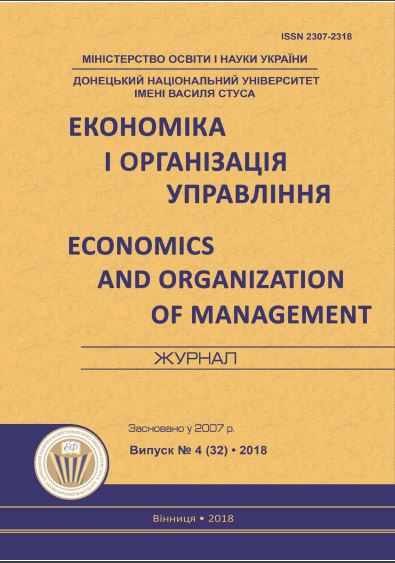Theoretical forms of the educational environment in the context of knowledge economy.
DOI:
https://doi.org/10.31558/2307-2318.2018.4.3Keywords:
educational environment, educational space, education, knowledge economy, educational system, family education, home studyAbstract
The article covers the essence of the educational environment concept in terms of the institutional aspect of understanding the phenomenon. Analyzed the formation and development of the concept of “learning environment”. Identified differences in the concepts of “learning environment”, “educational environment”, “education”, “educational system” and “family education”. Considered approaches to identifying the content of the educational environment. Тhe article explains the functios of educational environment. The model of educational environment is composed of the following structural components: personal, competent, informative, communicative, axiological, spatial, objective, organizational and active. Characterized the main factors necessary to create a favorable educational environment. In the article the value of economy of knowledges is considered in the context of globalizations them calls. The views of the contemporary scientists towards principles, based on which the development of the knowledge economy is made, have been studied.References
Словник української мови: в 11 тт. / АН УРСР. Інститут мовознавства; за ред. І. К. Білодіда. — К.: Наукова думка, 1970—1980.
Бим-Бад Б.М. Образование в контексте социализации / Б.М. Бим-Бад, А.В. Петровский // Педагогика. – 1996. – № 1. – С. 3-8.
Гонтаровська Н. Освітнє середовище як фактор особистості дитини: [монографія] / Н. Гонтаровська. – К.: Дніпро – VAL, 2010. – 623 с.
Гевчук Н.С. Виховання дітей трудових мігрантів в умовах соціально-освітнього середовища: автореф. дис. на здобуття наук. ступеня канд. пед. наук: спец. 13.00.05 – соціальна педагогіка / Н.С. Гевчук. – Київ, 2012. – 21 с.
Новые ценности образования: Тезаурус для учителей и школьных психологов / Сост. С. Г. Абрамова. Н. Г. Алексеев. Д. Бейкер и др. – М., 1995. – 63 с.
Данилюк А. Я. Теоретико-методологические основы проектирования интегральных гуманитарных образовательных пространств: Автореф. дис. ...д-ра пед. наук / А.Я. Данилюк. – Ростов н/Д., 2001. – 36 с.
Гора О. В. Освітнє середовище як фактор формування національної ідентичності студентів вищих навчальних закладів / О.В. Гора // Витоки педагогічної майстерності. Збірник наукових праць. Полтава, 2011. – С.97-101.
Про освіту. Закон України від 5.09.2017 №2145-VIII https://zakon.rada.gov.ua/laws/show/2145-19
Гриневич Л.М. Освітні індикатори для міжнародного оцінювання / Л.М. Гриневич // Теорія та методика управління освітою. - № 7. - 2011 р.
Загальноосвітні навчальні заклади (за даними Міністерства освіти і науки України) – [Електронний ресурс]: Режим доступу: http://www.ukrstat.gov.ua
Чим бажають займатися учні після закінчення середньої школи? / PISA IN FOCUS. - №12. – 2012. - [Електронний ресурс]: Режим доступу:http://www.oecd.org/pisa/
Education at a Glance (2011): OECD indicators / OECD Publishing. – [Електронний ресурс]: Режим доступу: http://dx.doi.org/10.1787/eag-2011-en

